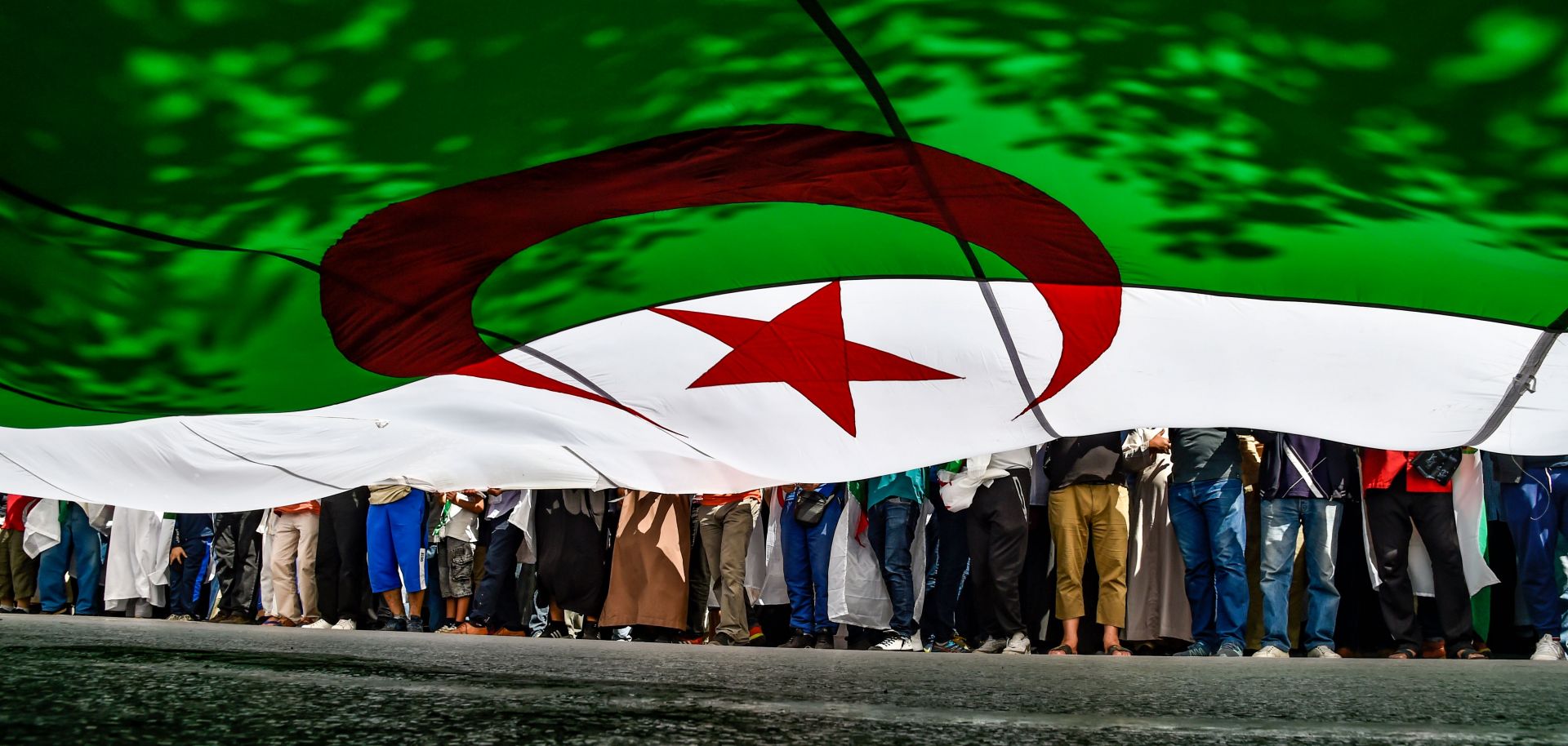ASSESSMENTS
In Algeria, a Test of the Limits of Reform Approaches
Jun 4, 2019 | 19:16 GMT

Algerian protesters bearing their country's flag march in Algiers on May 31. Protesters are looking to keep up the pressure on the North African country's ruling elite with weekly rallies despite the end of President Abdel Aziz Bouteflika's two-decade rule.
(RYAD KRAMDI/AFP/Getty Images)
Highlights
- The protest movement in Algeria has achieved notable, albeit small, concessions from the interim government thanks to its unwillingness to back down.
- The structure of the Algerian government, however, has not changed, and the military and civil government partnership that leads the country will only reluctantly budge in the face of the protests that have challenged that system.
- More than ever, the military occupies a position as the ultimate arbiter of the workings of the Algerian political system, especially as the presidency remains weakened for the foreseeable future.
Subscribe Now
SubscribeAlready have an account?
